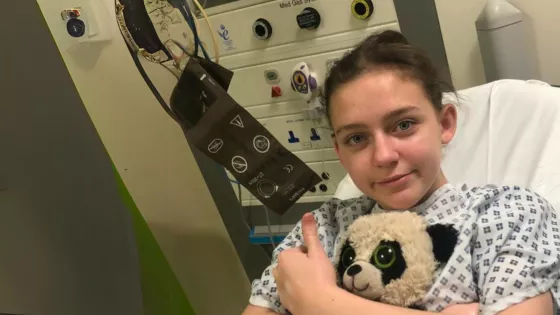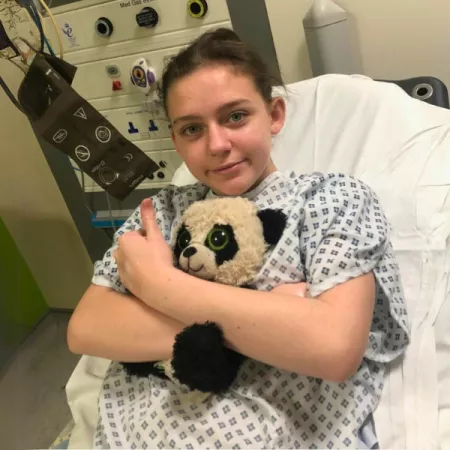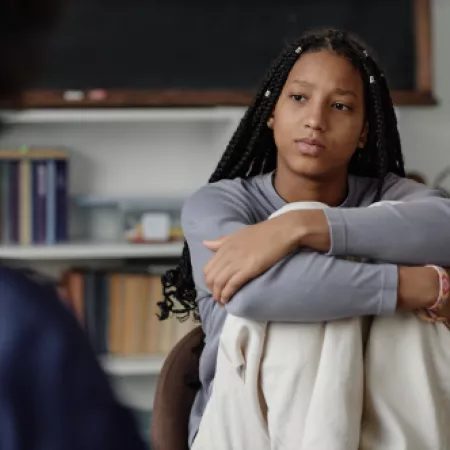For 17-year-old Meadow, uncontrollable seizures meant she could have hundreds in a day.
Diagnosed just before her tenth birthday, Meadow’s mum Louise describes the ‘horrific’ impact of constant seizures and the journey to find anti-seizure medications that would work for her daughter.
‘I often say I feel like a guinea pig because I’ve tried about 10 different medications to try to stop my seizures. Every time we talk about trying a new medication, I’m scared about what it will do to me.’Meadow
1 in 3 children with epilepsy like Meadow have seizures that can’t be controlled by medication. Seizures can have serious health risks and a huge impact on quality of life.
As National Epilepsy Week approaches (19-25 May) Young Epilepsy has launched a fundraising appeal to support urgent progress into targeted epilepsy research in order to improve diagnosis and treatment options for children and young people living with the condition.
Right now, in the UK, we don’t know why some children develop epilepsy and why some children lose their lives to it. Yet there’s a significant underfunding of research into epilepsy compared with other conditions.
Meadow was just 10 years old when she first noticed strange symptoms—sudden bursts of emotion, confusion, and the unsettling feeling that the floor was shifting beneath her feet. Initially, her mum, Louise dismissed these as odd but harmless, until the day Meadow experienced a severe seizure.
What followed was a frustrating journey. Many medical professionals misdiagnosed Meadow’s symptoms as panic attacks, leaving the family searching for answers. "I wasn’t imagining things," Meadow reflects. "I knew something was wrong, but no one seemed to believe me."
It wasn’t until they met a doctor that specialised in seizures, that they received the clarity they needed as Meadow was finally diagnosed with complex epilepsy.
However, the diagnosis was only the beginning of a seven-year journey to try and find a medication that can control Meadow’s seizures. While anti-seizures treatments can work for some in controlling seizures they are often accompanied by side-effects and for Meadow these were devastating.
More research is the key to developing better treatments. Young Epilepsy has launched an appeal to support greater epilepsy research and through Meadow’s story hopes to encourage others to donate and help drive forward much-needed understanding in epilepsy treatments and diagnosis.
To find out more visit Help Fund Epilepsy Research | Control Seizures
All donations to the appeal will automatically be doubled, giving every donation twice the impact for a child living with epilepsy.
A donation today can help researchers to learn more about the causes of epilepsy and how they affect each patient. Ultimately supporting doctors to treat and manage each patient’s condition more effectively.
Despite the obstacles, Meadow has shown incredible courage. She has faced setbacks, including the traumatic side effects of her medication impacting her GCSEs, but she remains determined to not let epilepsy define her.
I want to become a dance teacher one day. I want to show other kids with epilepsy that they can still chase their dreams.Meadow




